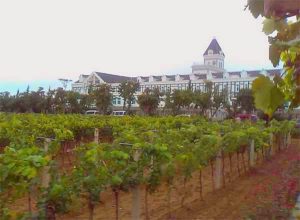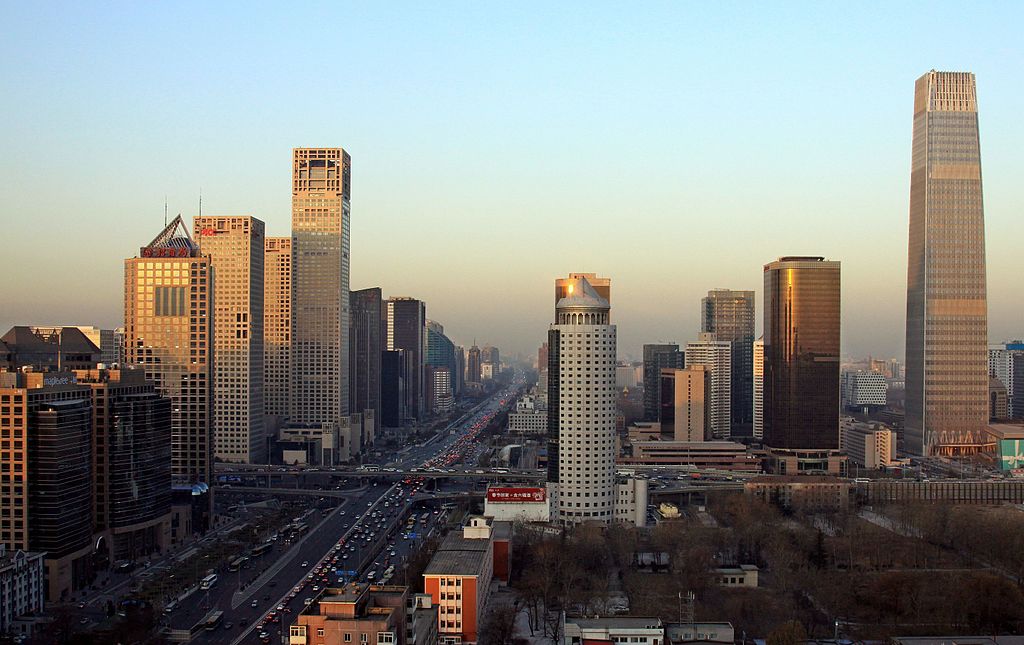‘Time is money and efficiency is life’, as the ancient Chinese saying goes. Each time I return home to Australia I make notes on my initial impressions. I find that it’s best to do this while the slate is clean. Not after being bombarded with our own Government-generated hype on distracting issues.
This has left me free to absorb a dazzling array of statistics and policy input from commentators in China. The following discusses several highlights when reviewing the Australian Institute of Company Directors Conference (AICD) visit.
Chinese development
I’ve been to China on business before, but only once experienced such an in-depth opportunity to spend time with people who had positioned themselves on the ‘inside’. This is the only way to develop a deep understanding of what looks simple, but never is.
The visit was in July 1998, a few months after the Tiananmen Square incident. I was there with a team from the Bank Credit Analyst Group of Canada. As part of the briefing, Robert Lloyd George helped us ponder questions such as:
- Why did the Chinese Empire recover from the early barbarian incursions of the early Fourth Century when its contemporary in the West, the Roman Empire, collapsed and declined into the Dark Ages?
- Why did China never have an age of exploration and science such as the West’s Renaissance, and the Age of Enlightenment?
- Why it was—despite Western supremacy in the field of ideas—that it was only from 1800 onwards that Western and colonial traders managed to dominate the Asian peoples?
Lloyd George proposed that leadership in Asia, in economic and cultural terms, would pass to the Chinese by 2018. As it turns out, it happened seven years earlier than predicted. Despite many obstacles along the way, it looks like continuing on its powerful trajectory. As Napoleon once said: “China – there lies a sleeping giant. Let him sleep, for when he wakes, he will shake the world …”
Another briefing I had before the 1998 visit involved some advice from the noted journalist, Rowan Calico. He suggested that if I read only one book on China, it should be The Tyranny of History (the roots of China’s crisis) by WJF Jenner. This book was an excellent investment.
Here I was in China, some 13 years later, with another high powered group of individuals. Again I was shown a dazzling array of figures and projections and given the opportunity to create my own crystal ball.
Big plans, big models
By good fortune, I was in the forum that received the briefing on China’s 12th Five Year Plan. An early comment from the presenters caught my attention: “this five year plan is quite different and represents a major change”. The concise briefing papers that were issued to us were excellent. Certainly more manageable than the full 1000-page plan itself!
Being in Beijing, the conference was somewhat Beijing-focused. Just as an Australian conference, if it were held in Canberra, would hardly mention where the actual wealth is generated in Australia. But I have to admit, the 3D modelling of Beijing’s CBD and the Olympic Games Park were truly spectacular. TV and the internet under an autocratic government was also an interesting experience.
Holed up in an international hotel we were able to view our CNN and BBC TV channels, unlike the other 1,339,724,852 Chinese people not staying in an international hotel. Their choice is up to 50 TV channels, all with the prefix CCTV, providing a selection of general entertainment.
However, each evening from 7pm-7.30pm, all the CCTV channels are synchronised to the ‘official’ (government propaganda) news channel. It’s just like Australia’s ABC on steroids!
As warned, Facebook and Twitter were not accessible due to the ‘destabilising effect’ they have on young people in other parts of the world. I was also warned by a long-term resident that all emails and text messages are carefully monitored. Quite a few times during the conference I heard members of our group enthusiastically commenting, “Wouldn’t it be great if we could introduce five-year planning programmes to Australia, where everything would proceed to schedule?” I’m not sure I agree…
Getting it right
Australia may not be progressing to a Grand Central Master Plan, but there is no shortage of plans. It is up to each of us to adopt our own plan and put it into motion to cover our own future. This freedom, both politically and economically, to have our own plans and map our own futures is an aspect of Western Civilisation that we should preserve.
The Friday forum was ‘SME Directorship: Getting it Right + Leadership and Succession Planning’. This was a very revealing session which highlighted the gradual change of the AICD’s focus over the years—from performance to conformance. After listening to repeated bleatings about how entrepreneurial founders often stayed too long and prevented the total shroud of conformance settling on various companies, I was moved to make the following remarks.
I think we are overlooking the tremendous responsibility that has been placed on leaders to ensure the SME sector remains vibrant. I no longer read the Chairman’s address or the CEO’s message upfront in the annual reports of the larger public companies. Why? Because they no longer represent a ‘window on the soul’ of the individuals running the company, but are politically-correct nonsense.
Language of leadership
Our discussion today focuses too much on diminishing the role of the founder and entrepreneur. They are important because without them, there would be no company. If we feel they are getting in the way of the role of good governance, may I suggest a different approach in your endeavours to bypass them. They don’t particularly want to be Executive Chairman, they would settle for being Leader. An approach could be made on the basis of ‘let’s remove all the administration stuff from you so you can focus on your role of being inspirational leader’.
The forum reminded me of a reference I made earlier to a great Australian industry leader, Sir Arvi Parbo. Sir Arvi emphasised the quality of what the company did, quality of product, and having a place in the hierarchy of lowest cost producers. “That way, and that way only, can we have a solid secure operation.”
What a difference to today’s board meetings. Many are cluttered with trivia such as the number of ‘band-aids’ the company has used in the previous month. I’m not denigrating safety concerns but safety, environment and so many other of the softer issues should simply be part of a company’s culture as it evolves. This would prevent the displacement of productivity and encourage the development of a solid, secure company.
Sir Arvi was also the one who raised the issue of company ‘conformance’ versus company ‘performance’. More recently we have seen companies with immaculate ‘conformance’ records simply go broke. These companies were sustainable in the sense that the word is used today, but disappeared because they forgot to make a profit.
A French chateau winery in Beijing?
 During the week, my friend and fellow delegate, Michael Tilley, asked what I was doing on the post-conference Saturday. He asked if I’d like to accompany his wine-producing group to Beijing’s equivalent of Margaret River.
During the week, my friend and fellow delegate, Michael Tilley, asked what I was doing on the post-conference Saturday. He asked if I’d like to accompany his wine-producing group to Beijing’s equivalent of Margaret River.
Well, what a day it turned out to be! Just 75km from Beijing’s CBD, we were hosted by the Mayor, Deputy Mayor, Councillors and Communist Party Officials from Miyun County.
The visit was co-ordinated by Australia’s highly respected Trade Commissioner, David Dukes. It was a most interesting day of observing a vigorous interchange of viticultural expertise, in both directions.
The Chateau Changyu is testament to China’s determination to produce world-class wines. This is done by overcoming climatic and soil challenges that would have the bravest Aussies in tears. This remarkable site is recommended as a ‘must include’ for any future visitors to Beijing.
